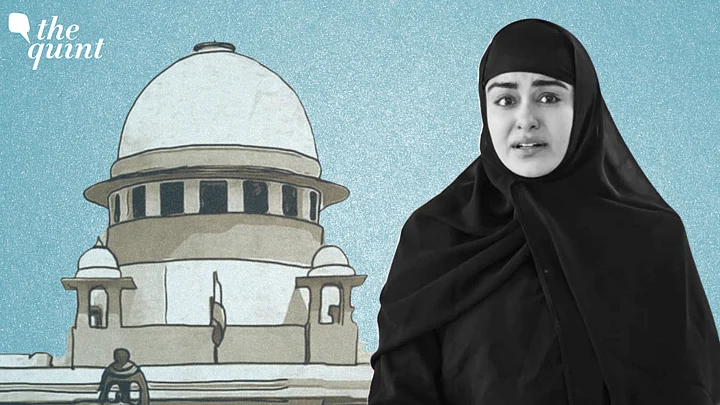The whirlpool of controversy surrounding The Kerala Story has refused to die down, with the Supreme Court, on Thursday, 18 May, issuing a stay order on the ban imposed by the West Bengal government on the screening of the movie in the state.
At the same time, the three-judge bench comprising Chief Justice of India DY Chandrachud, Justices PS Narasimha and JB Padriwala also cautioned the producers against any form of “distortion of facts.”
So, what are the facts of the matter?
The freedom of speech and expression, as a fundamental right guaranteed under Article 19(1) of the Indian Constitution, and its catena of “reasonable restrictions” have been put to test yet again in the context of the movie.
The Kerala Story is premised on alleged forced conversion of women from the state of Kerala into Islam and their subsequent induction into terrorist organisations like the ISIS.
The movie was promoted with ostentatious claims about unearthing the tragic stories of about 32,000 women, which fact-checkers soon pointed out were blatant exaggeration and fiction.
Is a Disclaimer Too Little, Too Late?
The Supreme Court bench, on Thursday, did indeed safeguard the fundamental right to freedom of speech and cautioned against any arbitrary restrictions.
While revoking the immediate fetters to the screenings, the court also upbraided the producers for distorting facts on the movie and instructed them to add a disclaimer that there is no factual backing to the claim that 32,000 women were converted and all depictions of the movie are fictionalised versions of true events.
But the question to consider is whether such safeguards offset the plausible communal hatred that the film might stir by portraying a work of fiction under the garb of “real testimonies”?
Defending the ban, the state of West Bengal had highlighted that while the movie is not banned from private exhibition – that is, on television or OTT platforms – it has been banned from public viewing in the interest of perceived threat to public order.
The state also argued that such a decision was taken post release, after gauging the impression of the initial viewers.
The bench, however, observed that the decision of the West Bengal government was a case of “overbreadth.” This is directly tied to the exercise of the fundamental right to speech and expression of the producers and cannot be curbed based on the presumption of public disharmony.
But does a post dated disclaimer, to be added by 20 May, almost a month after the release of the film, absolve the perception of hatred and mistrust it has already created amongst the audience? Will a disclaimer be effective in debunking the initial impression created by the trailer or will it be a blink and miss token of legal compliance?
One might even argue that the mandated disclaimer still leaves room for doubt. The uninitiated might wonder if the number 32,000 was a mere speculation or a cinematic representation or if there is any grain of truth in it. The disclaimer in its current form hardly does a job of clearly disproving the tall claims of the movie.
Besides, the court did not delve into why the West Bengal government’s order failed the threshold of reasonable restrictions. This, unfortunately, leaves room for politicisation and inaccurate interpretation of the stay order.
But Let's Be Clear...
Although the Supreme Court issued a stay order on the ban imposed by the West Bengal government, does this mean The Kerala Story gets a green signal from the apex court? Not entirely!
The writ petition is still sub judice, so Thursday’s order merely reverses the ban in West Bengal. While this is a welcome development, which upholds the right to freedom of expression, this shouldn’t be interpreted to exculpate the allegations of manipulation and misrepresentation levelled against The Kerala Story.
The petitioners against the film asserted that it contains scenes that explicitly spread vitriol against Muslims and can have long term ramifications on the lives of the Muslim citizens in India.
The bench, however, refrained from deciding on whether the film is offensive or not. Taking note of the petitioners’ claim that the film depicts details that are not only unverified but also incendiary and provocative, the bench has decided to watch the film and frame a doctrine about what can be permitted to be shown on screen and what cannot.
The matter will now be taken up in July.
However, as The Kerala Story gets the licence to hit the screens unhindered for now, it will be interesting to observe what effect it will have on the religious fabric of India and if a disclaimer is a sufficient fulcrum for maintaining communal harmony.
As we await the doctrine of protocols, one only hopes it doesn’t come in two months too late.
